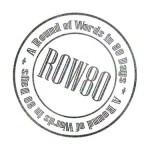The way I see it, there are three basic types of writing books. You have books on craft, books of writing exercises and prompts, and books about the writing life. A well-balanced writing library should probably represent all three types. Yet, not all writing books are created equal and as someone with limited shelf-space at my disposal, I’ve had to pick and choose which writing books I add to my collection. That’s when I came up with this list of The Essentials. If I had to pick only one or two books in each category, these are the books I would choose.
If you must own only one book on the craft of fiction, I would recommend Gotham Writers’ Workshop Writing Fiction. This book gives you the basics on character, plot, dialogue and description. There are many books on craft that are similar, but I’m partial to this one because each chapter is written by a different author. This means that as a reader you gain a variety of perspectives and approaches to writing, rather than just one author’s view.
Similarly, if poetry is your preference, the book on craft that I would recommend is Kim Addonizio’s Ordinary Genius which I reviewed previously on this site. This book explains the craft of poetry without losing the beauty of it as well. In addition, the writing is so fluid and engaging that we don’t even realize we’re learning about craft. This is the sort of book you could read cover-to-cover, like a novel.
Writing Exercises
 There are lots of great books with writing exercises and prompts, some of which I’ve already reviewed on this blog. I find, though that if I were forced to choose only one, it would be The 3am Epiphany by Brian Kiteley. While there are many other books that offer interesting exercises, this one is my favorite because the prompts not only get you writing, but they force you to consider elements of craft as well. In fact, you could learn as much about craft from this book as you would from the craft books listed above. There is also a sequel to this book called The 4am Breakthrough, but considering that there are 201 exercises in The 3am Epiphany, I suspect this book alone could keep a writer busy for a very long time.
There are lots of great books with writing exercises and prompts, some of which I’ve already reviewed on this blog. I find, though that if I were forced to choose only one, it would be The 3am Epiphany by Brian Kiteley. While there are many other books that offer interesting exercises, this one is my favorite because the prompts not only get you writing, but they force you to consider elements of craft as well. In fact, you could learn as much about craft from this book as you would from the craft books listed above. There is also a sequel to this book called The 4am Breakthrough, but considering that there are 201 exercises in The 3am Epiphany, I suspect this book alone could keep a writer busy for a very long time.
This category was the most difficult one for me to limit my choices, but I have managed to trim down my selections to two books. The first, Bird by Bird by Anne Lamott, is one of my favorite books ever. This book gives a warm and honest view of the writing life as experienced by Lamott.

Writing down the Bones by Natalie Goldberg is my other favorite in this category. Though a little more didactic than Bird by Bird at times, this book guides writers through all aspects of their writing life. Topics range from writing in restaurants to writing marathons to fighting tofu.
In the end, The Essentials may vary from one writer to another. If I had to limit my writing library to five books, these would be the ones I would choose. What books do you consider your Essentials?














 Call me Gabi (pronounced gah-BEE). I'm a writer, freelance teacher, and a lover of books and words. I'm also the instigator of DIY MFA. iggi's my sidekick, but he thinks he's the brains behind this operation.
Call me Gabi (pronounced gah-BEE). I'm a writer, freelance teacher, and a lover of books and words. I'm also the instigator of DIY MFA. iggi's my sidekick, but he thinks he's the brains behind this operation.
 Round of Words in 80 Days
Round of Words in 80 Days YA Cafe: Teens and Body Image
YA Cafe: Teens and Body Image KidLit and TeenLit Books on Body Image
KidLit and TeenLit Books on Body Image Katrina Kittle Guest Post: Writing Tough Subjects for Young Readers
Katrina Kittle Guest Post: Writing Tough Subjects for Young Readers